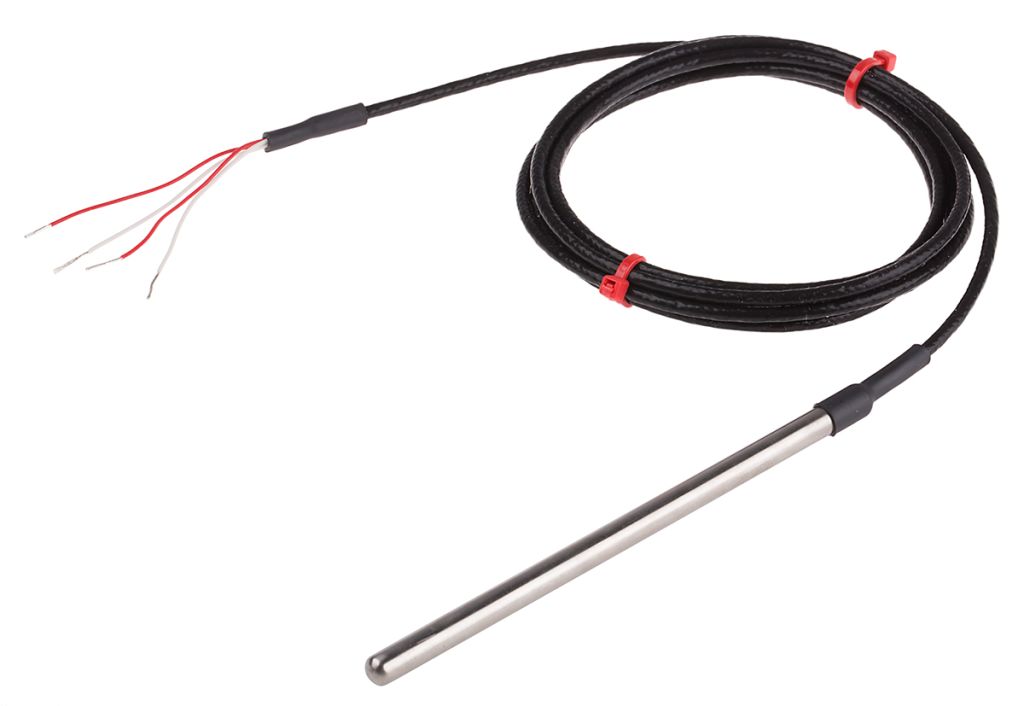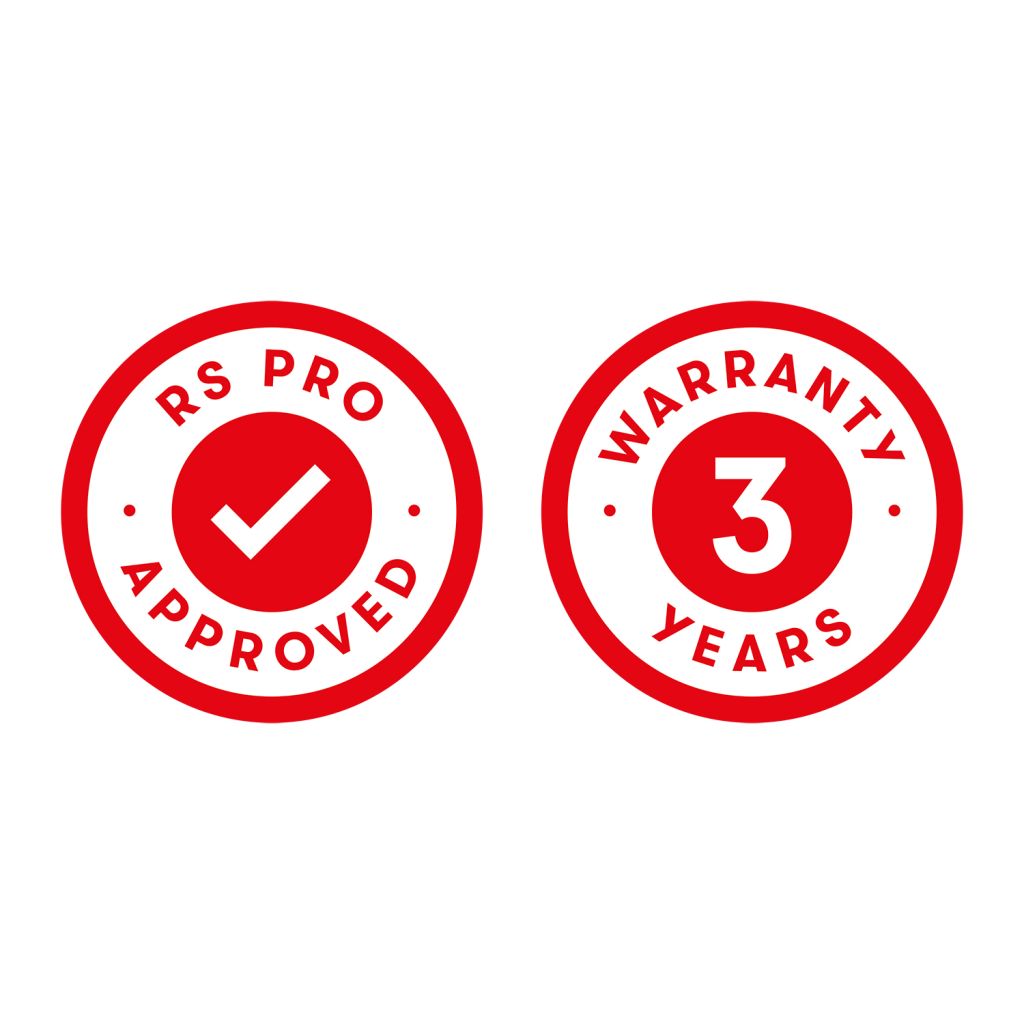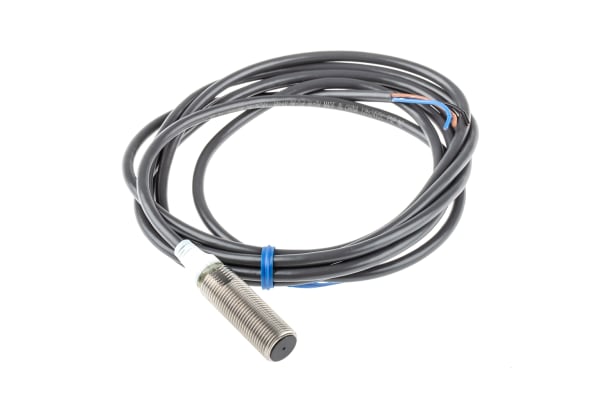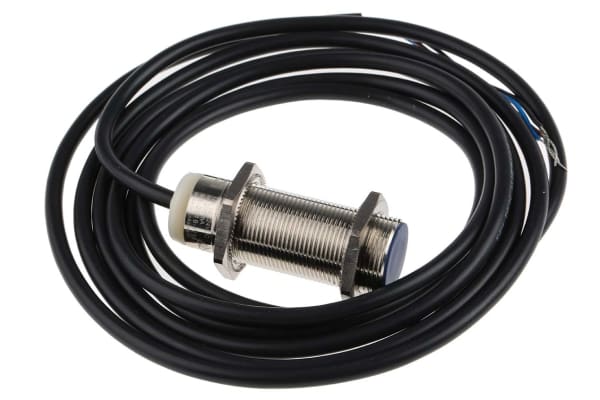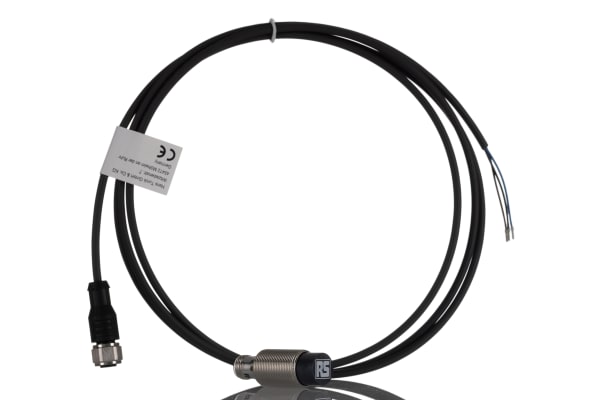RS PRO PT100 RTD Sensor, 6mm Dia, 125mm Long, 4 Wire, Probe, Class B +250°C Max
- RS Stock No.:
- 1235603
- Brand:
- RS PRO

Technical Reference
Legislation and Compliance
RoHS Certificate of Compliance
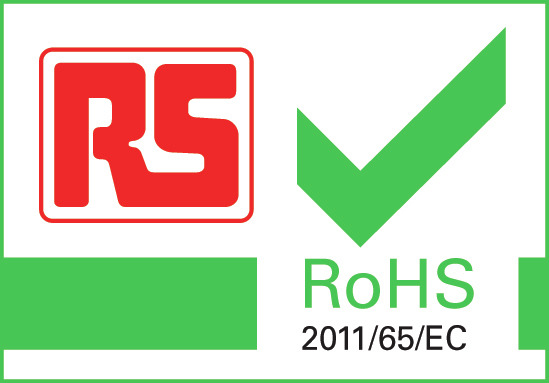

EU Directives 2011/65/EU and 2015/863 restrict the use of the 10 substances below in the manufacture of specified types of electrical equipment.
Whilst this restriction does not legally apply to components, it is recognised that component “compliance” is relevant to many customers.
RS definition of RoHS Compliance:
- The product does not contain any of the restricted substances in concentrations and applications banned by the Directive,
- and for components, the product is capable of being worked on at the higher temperatures required by lead–free soldering
The restricted substances and maximum allowed concentrations in the homogenous material are, by weight:
| Substance | Concentration |
| Lead | 0.1% |
| Mercury | 0.1% |
| PBB (Polybrominated Biphenyls) | 0.1% |
| PBDE ( Polybrominated Diphenyl Ethers) | 0.1% |
| Hexavalent Chromium | 0.1% |
| Cadmium | 0.01% |
| DEHP (Bis (2-Ethylhexl) phthalate) | 0.1% |
| BBP (Benzyl butyl phthalate) | 0.1% |
| DBP (Dibutyl phthalate) | 0.1% |
| DIBP (Diisobutyl phthalate) | 0.1% |
The supplier of the item listed below has informed RS Components that the product is "RoHS Compliant".
RS Components has taken all reasonable steps to confirm this statement. Information relates only to products sold on or after the date of this certificate.
| RS stock number | 1235603 |
| Product description | RS PRO PT100 RTD Sensor, 6mm Dia, 125mm Long, 4 Wire, Probe, Class B +250°C Max |
| Manufacturer / Brand | RS PRO |
RS Components Ltd, Birchington Road, Corby, Northants, NN17 9RS, UK
Statement of Conformity

This statement confirms that the product detailed below complies with the specifications currently published in the RS media and has been subject to the strict quality conditions imposed by RS Components’ internal management systems. Furthermore and where applicable, it confirms that all relevant semiconductor devices have been handled and packed under conditions that meet the administrative and technical requirements of ANSI/ESD S20.20 and EN61340-5-1 electrostatics control standards.
| RS stock number | 1235603 |
| Product description | RS PRO PT100 RTD Sensor, 6mm Dia, 125mm Long, 4 Wire, Probe, Class B +250°C Max |
| Manufacturer / Brand | RS PRO |
The foregoing information relates to product sold on, or after, the date shown below.
RS COMPONENTS
| Date | Mar 16, 2025 |
RS Components Pte Ltd Robinson Road, P.O. Box 1582, Singapore 903132
Country of Origin: GB
Product Details
RS Pro General Purpose 4 Wire Pt100 PRT Probe with Screened Teflon Lead
From RS Pro a high-quality and reliable Pt100 PRT (Platinum Resistance Thermometer) or RTD (Resistance Temperature Detector) sensing probe. This RTD probe has a robust construction with the sensing element encased in a rigid 316 stainless steel sheath. The leads have a durable and flexible Teflon insulation and are screened for protection against electromagnetic interference. This platinum resistance thermometer provides accurate and reliable temperature measurement for a wide range of applications.
What is an RTD?
An RTD is a type of temperature sensor based on the correlation between metals and temperature. As the temperature of a metal increases so does its resistance to the flow of electricity. This resistance can be measured and converted to a temperature reading. In a Pt100 RTD ’Pt’ stands for platinum (platinum wire or film) and ’100’ means that the temperature sensor has a resistance of 100 Ohms at 0°C. Platinum is the most reliable metal due to its linear resistance to temperature relationship over a large temperature range.
What is a Pt100 Probe?
A Pt100 probe is the most rugged form of RTD. The Pt100 temperature sensor element is mounted inside a metal sheath or probe. This protects it from being damaged by the surrounding environment when it is inserted into the process to be measured. The other end of the probe is terminated by an insulated lead comprising of 4 wire tails which are connected to the temperature measuring equipment.
Features and Benefits
• High stability sensing element with a precision output
• IEC 60751 Class B accuracy/tolerance
• Temperature measurement range of -50 to +250°C
• 4 lead wires for accurate readings
• Leads connect to any 2 3 or 4 wire PT100 instrument
• Rigid 316 corrosion resistant stainless steel sheath for protection of sensing element
• Flexible Teflon insulation provides thermal and electrical insulation, impact strength and protects against moisture, corrosion and abrasive chemicals even in extreme temperatures
• Screened cable for protection against electromagnetic interference
Applications
These Pt100 PRT sensor probes with their robust design are ideal for use in many general purpose industrial applications including the following:
• Air conditioning and refrigeration
• Chemical industry
• Plastics processing
• Stoves and grills
• Air, gas and liquid temperature measurement
• Exhaust gas temperature measurement
• Food processing
• Laboratories
Frequently Asked Questions
How Does a PRT Temperature Sensor Work?
The PRT temperature sensor works by placing the sensor element (or process end) into the equipment or process that requires temperature measurement. As the temperature of the platinum resistance thermometer increases it’s resistance to the flow of electricity increases. For every increase per degree of temperature the electrical resistance also changes by a set ratio, this is called the temperature coefficient. For platinum, this ratio is .00385 ohm/ohm/°C which means for a Pt100 with a 100 ohm resistance the increase in resistance per degree of temperature would be 0.385 ohms. The total resistance reading can, therefore, be measured and converted into temperature.
How is the Resistance Measured?
The resistance generated by the temperature sensor is measured by passing current through one of the wires to produce a voltage. This voltage is then measured using a suitable bridge or voltmeter and the resistance calculated in ohms using Ohm’s Law (R=V/I). Once the resistance is known you can convert it to a temperature reading using a calibration equation or a Pt100 table. A temperature measurement device or calibrator can also be connected to the leads of the probe that will automatically convert the measured resistance into a temperature reading.
Specifications
| Attribute | Value |
| Sensor Type | PT100 |
| Brand | RS PRO |
| Termination Type | Cable |
| Thermocouple Type | PT 100 |
| Probe Material | Stainless Steel |
| Minimum Temperature Sensed | -50 °C |
| Cable Length | 2 m |
| Probe Diameter | 6 mm |
| Probe Length | 125 mm |
| Maximum Temperature Sensed | +250 °C |
| Process Connection | Probe |
| Number Of Wires | 4 |
| Accuracy | Class B |
